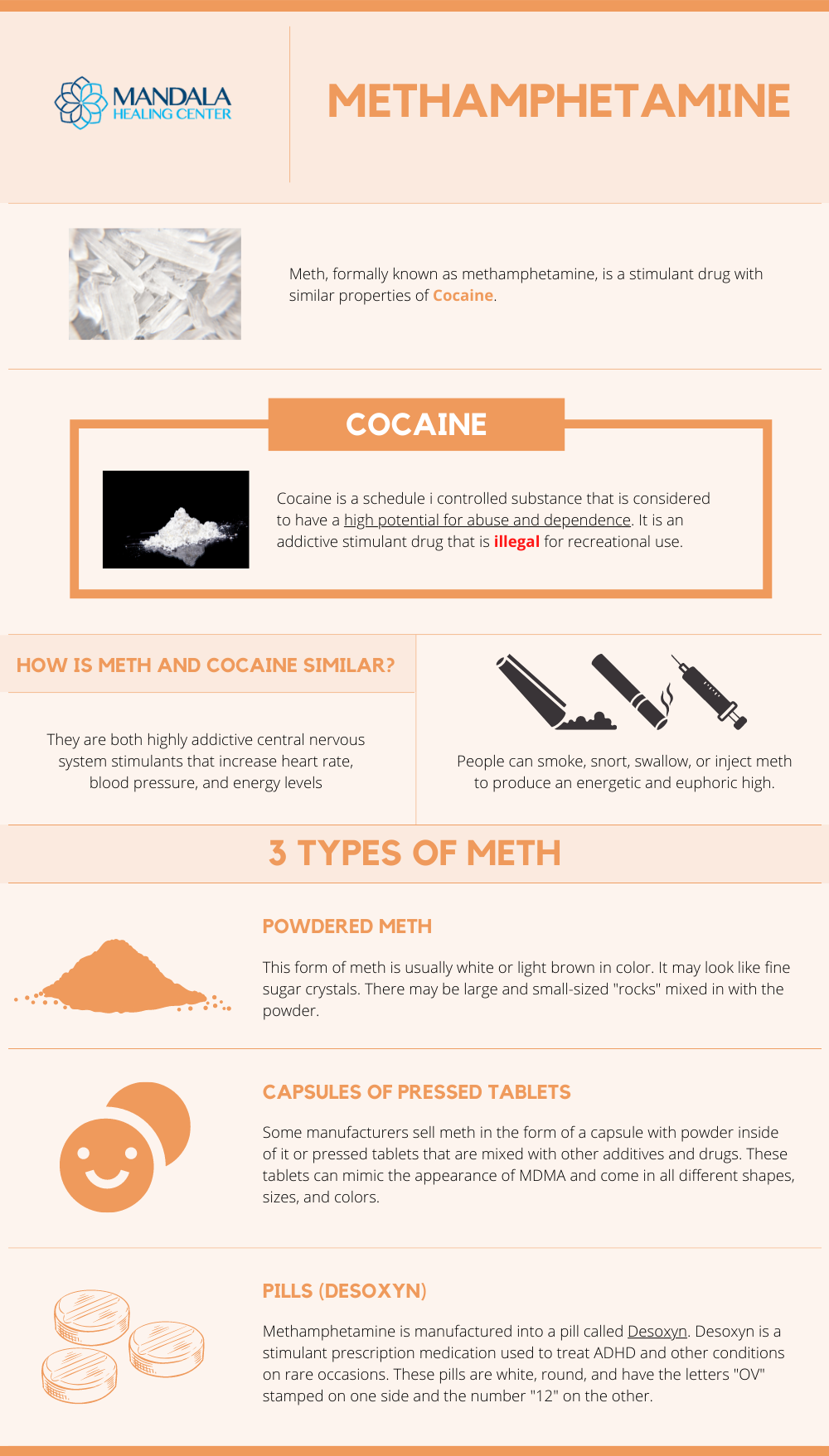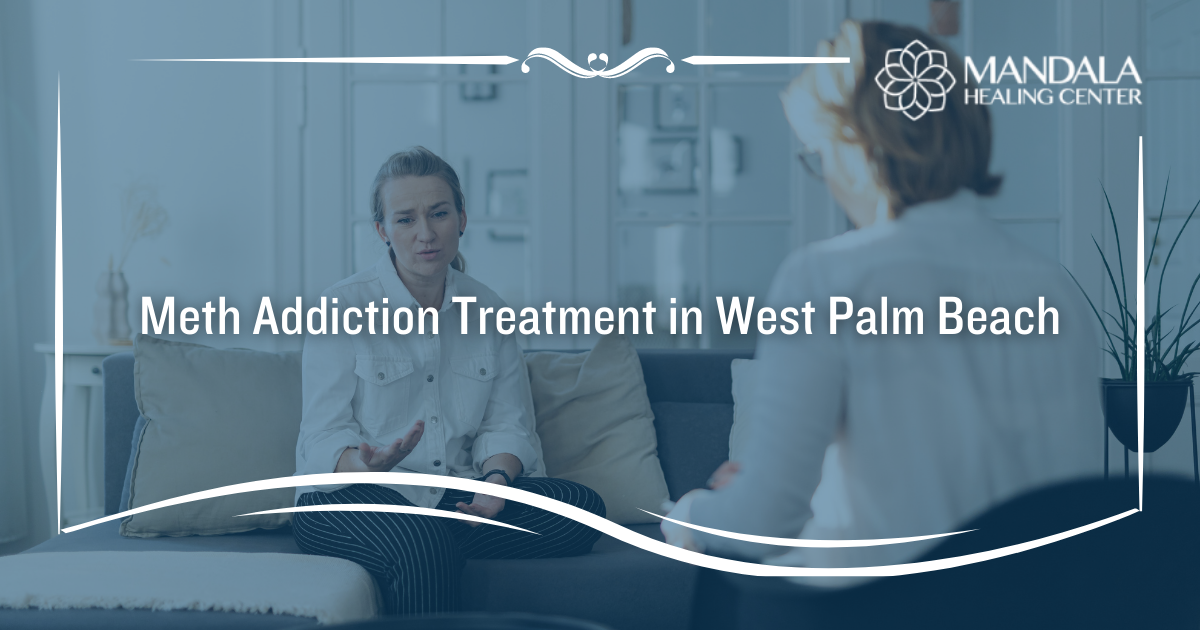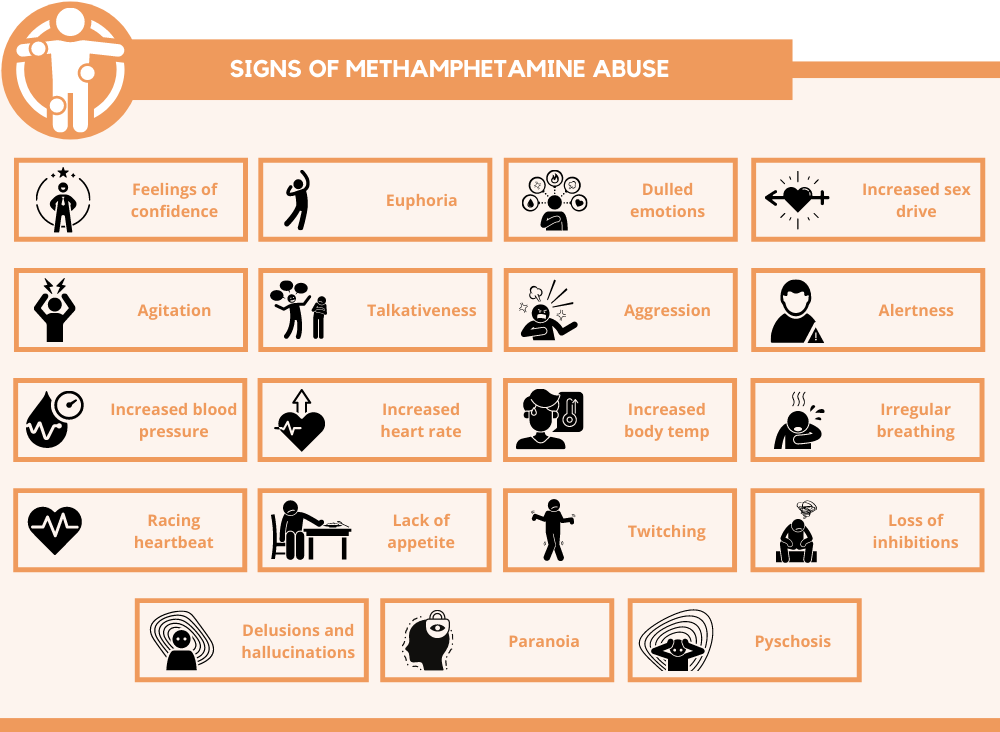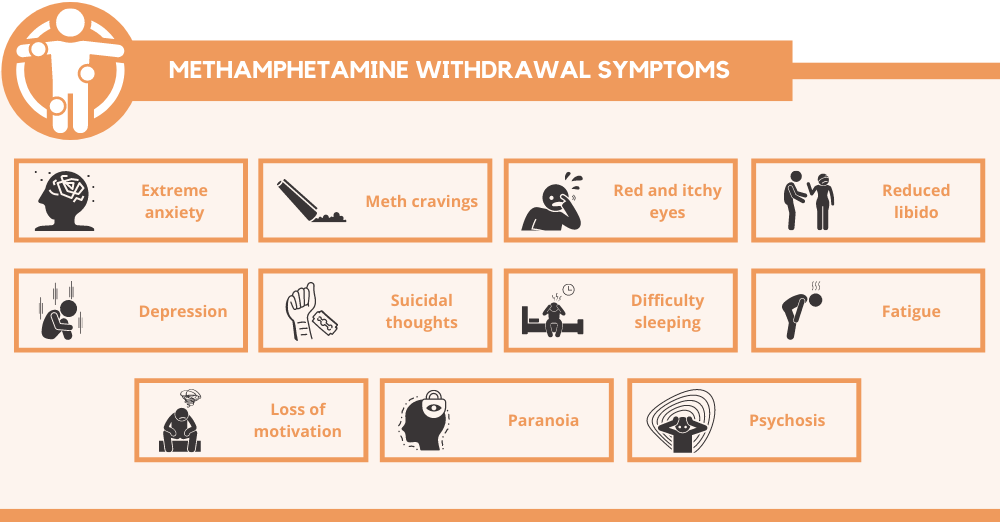Jump to Section
Toggle
Methamphetamine (meth) is a potent stimulant drug that is known to cause extreme anxiety, paranoia, aggression, hallucinations, mood swings, and even psychosis.[1] It can also change the way a person thinks, behaves, and experiences emotions. These symptoms can persist long after an individual quits abusing meth, proving the need for long-term inpatient care.
Meth addiction treatment requires comprehensive care consisting of detox, individual therapy, group counseling, and extensive relapse prevention planning.
Signs of Meth Addiction
Meth is an extremely potent stimulant drug. Consuming a small amount of meth can produce intense symptoms and a jolt of energy. The drug works by increasing the levels of dopamine in the user’s brain and increasing energy, alertness, and senses. Meth also speeds up the body’s systems at a dangerous level, leading to increased blood pressure, heart rate, and respiratory rate. Repeated exposure to excess levels of dopamine, as well as the desire to experience stimulant-like effects, can lead to meth addiction.
Individuals who abuse methamphetamine may display the following signs:
- Extreme feelings of confidence
- Euphoria
- Dulled emotions
- Increased sexual arousal
- Increased levels of agitation
- Talkativeness and increased sociability
- Bizarre or aggressive behavior
- Alertness
- Increased blood pressure, heart rate, and body temperature
- Irregular breathing and racing heartbeat
- Lack of appetite
- Twitching or fidgeting
- Loss of inhibitions
- Delusions and hallucinations
- Extreme paranoia
- Psychosis
If an individual is abusing meth, they must receive professional methamphetamine addiction treatment.
What to Expect During Meth Detox in West Palm Beach
While the physical symptoms of meth withdrawal are not as severe as other drugs, the psychological symptoms can be grueling. Typically, withdrawal symptoms begin within 24 hours of the individual’s last dose, peaking at the 7th or 10th day of detox. After about two weeks, most of the symptoms of meth withdrawal should subside.
The common symptoms of meth withdrawal include:[2]
- Extreme anxiety
- Intense cravings for meth
- Red and itchy eyes
- Decreased sexual desire or pleasure
- Depression
- Suicidal ideation or behaviors
- Trouble sleeping
- Little energy and increased fatigue
- Loss of motivation
- Paranoia
- Psychosis
During drug detox, individuals will be medically and psychologically monitored for complications. Individuals with severe symptoms of meth withdrawal may be given benzodiazepines to soothe feelings of paranoia, aggression, and anxiety.
How Does Meth Addiction Treatment Work?
Once an individual completes meth detox, they will move on to inpatient addiction treatment. Typically, meth rehab consists of extensive therapy, treatment for any co-occurring disorders, and thorough relapse prevention planning.
The therapy used during treatment helps individuals recover from the lasting psychological effects of long-term meth abuse. Many individuals recovering from meth addiction also suffer from a co-occurring disorder. As a result, dual diagnosis treatment is usually included in meth rehab programs.
Therapy
The most common type of therapy used during meth addiction treatment in West Palm Beach is behavioral therapy. Cognitive-behavioral therapy (CBT) is used to help patients develop healthy coping mechanisms to replace their negative patterns of thinking and behaving. According to research, CBT has been effective in reducing stimulant use even after only a few sessions.[3]
Contingency management (CM) is a common therapeutic approach in meth addiction recovery programs. This form of behavioral therapy provides patients with incentives for continued abstinence. This approach helps create a positive association with staying sober.
Other common forms of therapy used during meth rehab include:
- Family therapy
- Addiction education groups
- 12-step facilitation therapy
- Group counseling
Dual Diagnosis Treatment
Many individuals recovering from meth addiction suffer from co-occurring disorders like anxiety, PTSD, bipolar disorder, and even meth-associated psychosis. As a result, dual diagnosis counseling is an integral aspect of treatment.
Patients with co-occurring disorders may attend additional counseling sessions utilizing a variety of therapies. One of the most common forms of therapy for dual diagnosis patients is dialectical-behavior therapy (DBT), which is similar to CBT. Additionally, some patients may require psychiatric medications to manage the symptoms of their mental health conditions on a short-term or long-term basis.
Relapse Prevention Planning
Relapse prevention planning is one of the most important aspects of meth addiction recovery. Individuals recovering from meth addiction tend to have higher chances of relapsing than individuals who are addicted to other substances. This is most likely due to the significant and long-lasting psychological effects of the drug. Thankfully, relapse prevention planning is an effective way to teach recovering addicts how to overcome obstacles in real-life situations without turning to drugs or alcohol.
Relapse prevention planning includes the following:
- Identifying triggers and situations that led to drug abuse
- Adopting healthy coping mechanisms to work through triggers
- Creating a list of sober supports to call when things get rough
- Attending weekly addiction support groups and therapy
- Developing a sober support system by attending an alumni support group
- Learning how to practice self-care consistently
Get Connected With a Meth Addiction Treatment Program in West Palm Beach
If you or a loved one suffer from meth addiction, a professional addiction treatment program in West Palm Beach can help. Mandala Healing Center is a comprehensive treatment program that offers a wide range of services, including meth detox, individual counseling, group therapy, dual diagnosis treatment, and relapse prevention planning.
Contact us today for more information on our substance abuse treatment program in West Palm Beach.
References:














